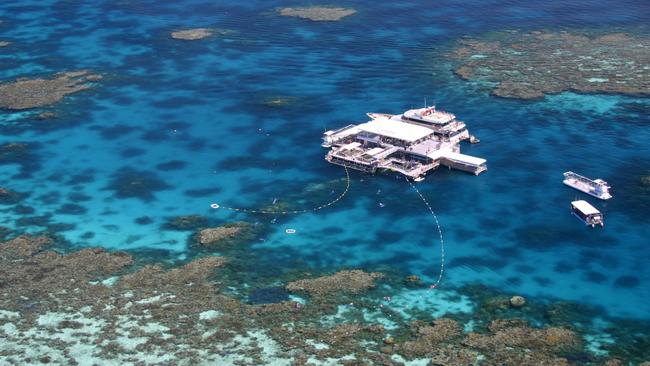Court rejected claims that Adani posed threat to Great Barrier Reef
Claims that Adani is a threat to Great Barrier Reef have already been tested in court — and dismissed.

An international campaign has successfully branded Adani’s proposed Carmichael coal mine a “carbon bomb” that is set to blow up the Great Barrier Reef.
But the Galilee Basin is a long way from the Queensland coast and even further from the reef.
Carmichael may pose genuine environmental concerns in terms of water use, land clearing and habitat loss. There may well be environmental impacts from increased shipping through reef waters and from an expanded Abbot Point coal terminal near wetlands. But the bigger claim that Adani poses an existential threat to the Great Barrier Reef that can be avoided by banning the mine has been tested in the Federal Court and rejected.
The Australian Conservation Foundation took the federal environment minister to court claiming he failed to take account of the climate change impact of the Adani project and potential harm to the reef when he approved it. ACF argued the harmful effects of climate change (ocean temperature and acidification) were the most serious threat to the reef, would get worse, and depended on how effectively the issue of rising levels of greenhouse gases was addressed world wide.
ACF asked the Federal Court to find the environment minister should have taken greenhouse gases from combustion of coal from the mine into greater account.
However, the federal minister argued that any increase in global greenhouse gas emissions from the Adani mine would depend on a number of variables.
This included:
● Whether the mined coal would replace coal currently provided by other suppliers;
● Whether the burning of the mined coal would be a substitute for other energy sources;
● The efficiency of coal burning power plants; and
● The international obligations of coal burning countries to address emissions within their respective borders.
The Federal Court did not rule on whether the Adani mine was a good thing or not.
But the trial judge supported the environment minister’s right to make the decision he did.
And a full bench of the Federal Court upheld the original judgment after ACF appealed.





